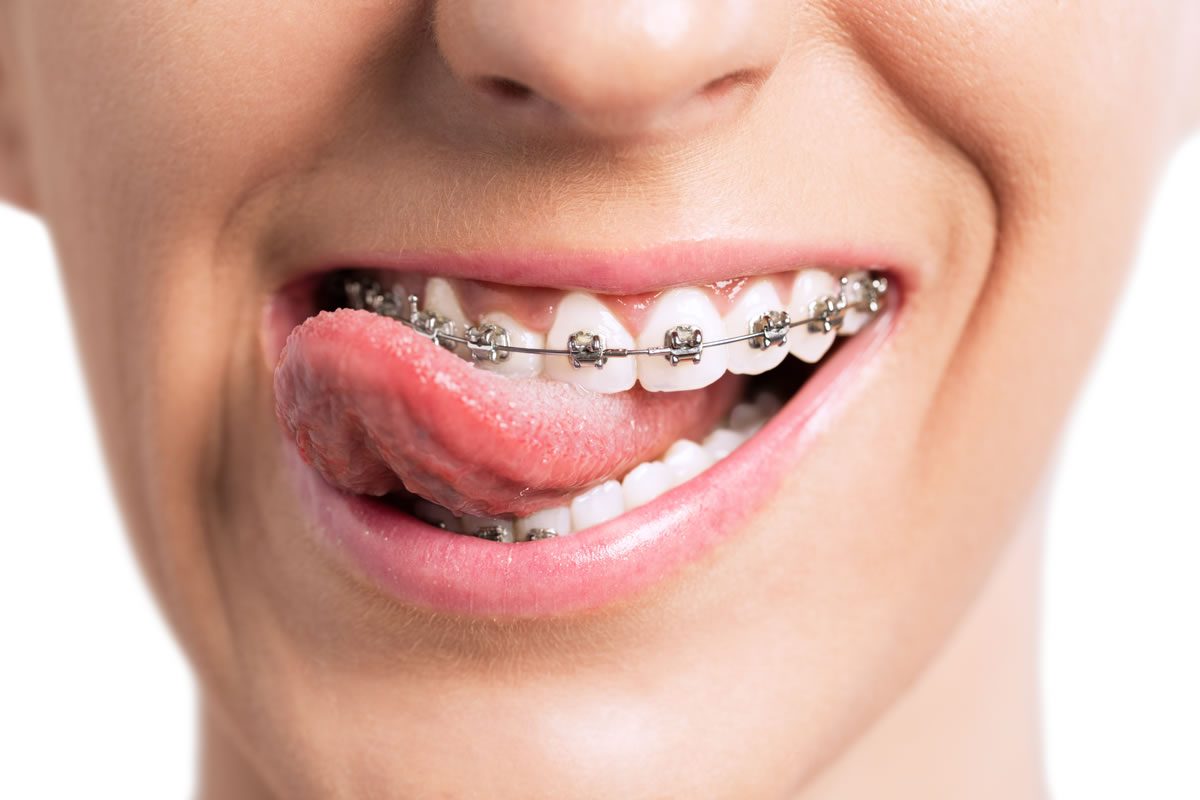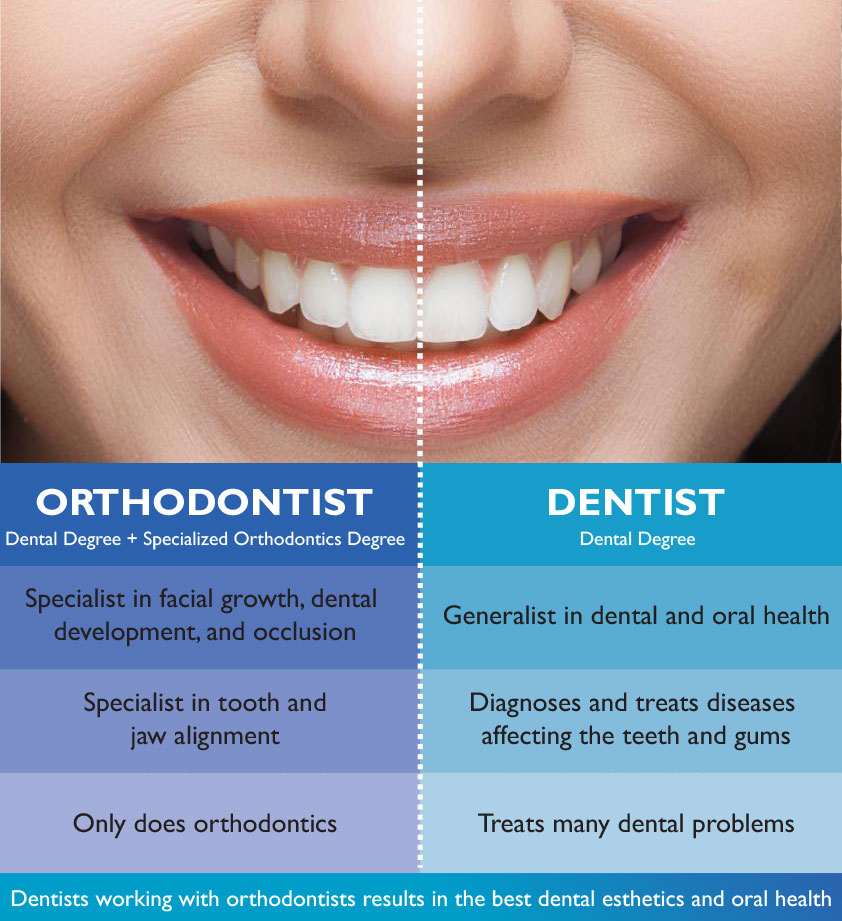What Does Causey Orthodontics Do?
What Does Causey Orthodontics Do?
Blog Article
3 Easy Facts About Causey Orthodontics Explained
Table of ContentsSome Ideas on Causey Orthodontics You Should KnowCausey Orthodontics Fundamentals ExplainedUnknown Facts About Causey Orthodontics3 Simple Techniques For Causey OrthodonticsExcitement About Causey OrthodonticsAn Unbiased View of Causey OrthodonticsThe Definitive Guide to Causey Orthodontics
What is the distinction in between a dental practitioner and an orthodontist? All dental experts, including orthodontists, deal with the teeth, gums, jaw and nerves.
Orthodontists and dentists both supply dental take care of individuals. Orthodontists can function in a dental workplace and provide the same treatments as various other dental practitioners. You can assume of both doctors that treat gum tissue and teeth problems. The primary distinction is that becoming an orthodontist calls for a particular specialty in dealing with the imbalance of the teeth and jaw.
The Ultimate Guide To Causey Orthodontics
An orthodontist is a dental expert that has actually undergone training to concentrate on the medical diagnosis, avoidance and therapy of irregularities in the jaw and teeth. Their training includes dealing with these existing conditions. They can likewise determine prospective problems in teeth placement that may develop when problems are left without treatment. Orthodontists can aid people of any ages.
This includes all the required education and learning to become a general dental expert. According to the American Student Dental Association (ASDA), it means you will need to have either a Doctor of Medicine in Dentistry (DMD) or a Doctor of Oral Surgical Procedure (DDS). To put it simply, orthodontists require to complete dental college and after that obtain an orthodontics specialized education.
Some orthodontists additionally obtain their masters in craniofacial biology. orthodontist expert (https://www.ultimate-guitar.com/u/causeyortho7). Several oral colleges provide restricted orthopedic training and instruction, which is why general dental professionals need to visit orthodontic school after college graduation. Orthodontic residency programs use extensive training for this sort of dental expertise. These programs concentrate on two particular areas or techniques: Dentofacial Orthopedics: This research concentrates on leading teeth and jaw advancement.
Getting My Causey Orthodontics To Work

 The general goal of an orthodontist is to boost a patient's bite. Not every person is birthed with straight teeth, and an orthodontist will guarantee that individuals get uniformly spaced straight teeth.
The general goal of an orthodontist is to boost a patient's bite. Not every person is birthed with straight teeth, and an orthodontist will guarantee that individuals get uniformly spaced straight teeth.
Causey Orthodontics Things To Know Before You Buy
The American Organization of Orthodontists suggests your first check up by age 7. You'll need to see your orthodontist if you have an imbalance in your teeth, additionally called malocclusion. If you notice irregular bite patterns, a slightly misshapen jaw, or when your teeth are overcrowded, you will likely require orthodontic therapy.
At Advanced Orthodontics, we offer people with a all natural therapy experience. Furthermore, we supply flexible therapy routines, adaptable settlement options and an enjoyable, satisfying experience. Phone call ( 480) 357-4900 today for additional information and timetable an appointment.
An orthodontist is a dental practitioner trained to identify, protect against, and deal with teeth and jaw irregularities. They fix existing problems and are educated to determine troubles that might create in the future. Orthodontists deal with individuals of every ages, from children to adults. People usually link an excellent smile with healthiness.
Causey Orthodontics Things To Know Before You Buy
Malocclusion, or misaligned teeth, can bring about oral issues, including tooth degeneration, gum tissue disease, and tough or agonizing chewing. Not everybody is birthed with straight teeth. If you have a poor bite or large areas in between your teeth, you might wish to speak with a dental practitioner concentrating on orthodontic treatment.
(Image Credit: DigitalVision/Getty Images) Orthodontists utilize repaired and detachable oral tools, like braces, retainers, and bands, to alter the setting of teeth in your mouth. Orthodontic treatment is for oral irregularities, consisting of: Misaligned teethBite troubles, like an overbite or an underbiteCrowded teeth or teeth that are too much apartJaw misalignmentThe objective of orthodontic treatment is to enhance your bite.
An Unbiased View of Causey Orthodontics

All orthodontists are dental professionals, yet not all dental practitioners are orthodontists. Orthodontic residency programs use extensive, concentrated direction for dental experts. They focus on 2 areas: Just how to effectively and securely relocate teeth Just how to effectively lead advancement in the teeth, jaw, and faceOnce an orthodontist has completed training, they have the option to come to be board licensed.
Imbalance, or malocclusion, is the most usual factor people see an orthodontist. It is genetic and is the result of dimension distinctions in between the top and lower jaw or in between the jaw and teeth. family orthodontics. Malocclusion causes tooth congestion, an irregular jaw, or uneven bite patterns. Malocclusion is typically treated with: Your orthodontist attaches metal, ceramic, or plastic square bonds to your teeth.
The 20-Second Trick For Causey Orthodontics
If you have only small malocclusion, you may be able to make use of clear dental braces, called aligners, as opposed to conventional braces. Some people need a headgear to aid move teeth into line with stress from outside the mouth. After dental braces or aligners, you'll require to use a retainer. A retainer is a custom gadget that maintains your teeth in position.
Report this page